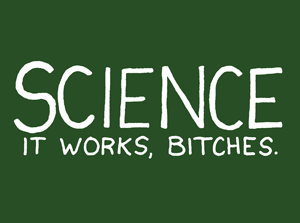A report released on Wednesday in the U.S. has found that the sexual solicitation of children by adults online simply isn’t a significant problem. The report was produced by the Internet Safety Technical Task Force, created in February 2008 by 50 U.S. state attorneys. You can see the final report here.
Numerous large companies with a stake in online communities, as well as special interest groups, joined the taskforce. You can see a partial list of them here, and they are also listed on page 1 of the Executive Summary document.
There is some language about things “needing further study” (give us more money), and some that is obvious pandering (“Sexual predation in all its forms … is an abhorrent crime.” Well duh.)
More interesting, and this is partly covered in the New York Times article, are the following findings:
Sexual predation on minors by adults “… typically involved post-pubescent youth who were aware that they were meeting an adult male for the purpose of engaging in sexual activity.” This is young girls willingly meeting up with older men to have sex. This shouldn’t surprise anyone, and it has been happening since before the Internet. This is young people making bad decisions because they’re not old enough to know better, and the criminal sad-sacks who prey on them. That’s the problem, not the evil Internet. Focusing on the wrong thing isn’t helping to fix the problem.
But even this isn’t all that prevalent. “Bullying and harassment, most often by peers, are the most frequent threats that minors face, both online and offline.” So, teenagers being mean to one another is a far greater problem than adults attempting to have sex with young girls. And it’s not just online. If people spent more time worrying about why their kid is beating up other kids at lunchtime, and less about a vastly overrated threat, maybe they’d be doing something about the real issue here.
In fact, social networks (Like MySpace and Facebook) aren’t where the evil pedophiles hang out.
Social network sites are not the most common space for solicitation and unwanted exposure to problematic content, but are frequently used in peer-to-peer harassment, most likely because they are broadly adopted by minors and are used primarily to reinforce pre-existing social relations.
If you’re worried about MySpace, worry about the other girls in your daughters class, not some stranger on the Internet.
In regard to ‘unwanted exposure to porn’, check this out: “Unwanted exposure to pornography does occur online, but those most likely to be exposed are those seeking it out, such as older male minors.” Teenage boys like to look at boobs. Film at 11.
If you’re concerned about protecting children, this is what you should worry about:
“Minors are not equally at risk online. Those who are most at risk often engage in risky behaviors and have difficulties in other parts of their lives. The psychosocial makeup of and family dynamics surrounding particular minors are better predictors of risk than the use of specific media or technologies.”
Again, this should come as no surprise. Kids with crappy parents are more likely to get into trouble. If people spent more time ensuring that kids were well fed, educated and happy, it would go a long way to fixing all of these problems.
Once again we see that humans are, in the main, staggeringly bad at assessing risk. The moral morons scream and yell to ‘Protect The Chiiiildren’ and take resources away from the people who are actually doing something to help, by insisting on stupid Internet filters that don’t work. When some actual research is done, we see that people are afraid of something that almost never happens, and are ignoring the enormous problem that is staring them in the face. Idiots.




